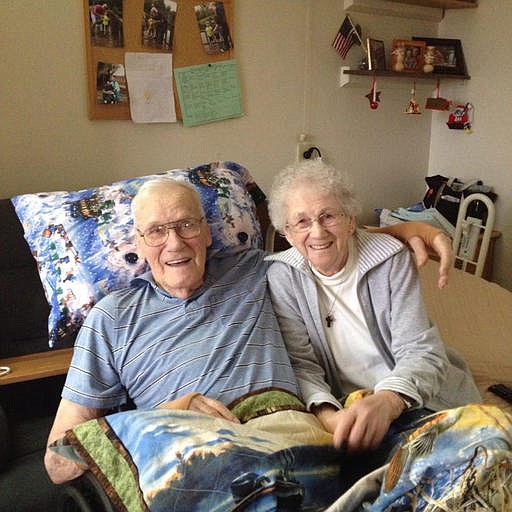Sen. Claire McCaskill on Tuesday rolled out legislation aimed at helping World War II veterans she said were exposed to mustard gas by the military, a practice a daughter of one Missouri veteran said led to chronic health issues for her father.
The Missouri Democrat's bill would require the Veterans Affairs Department and the Defense Department to reconsider disability benefits denied to those who claimed the testing caused health problems. McCaskill's office said the military tested the effects of mustard gas and the blister agent lewisite on approximately 60,000 veterans by the end of WWII. McCaskill's staff estimates a couple hundred participants could still be alive.
Those tested were sworn to secrecy until 1991, and McCaskill said some have since struggled to receive compensation for health issues caused by exposure. The Democratic senator said the VA has denied about 90 percent of claims.
The legislation also would require the VA and the Pentagon create a new policy to process future benefit claims related to mustard agents.
An emailed statement from the VA sent Tuesday by spokesman James Hutton said the agency recognizes full body mustard gas exposure might have caused disabilities. The VA plans to send letters in June to veterans who participated in testing and their families with a number to call for help.
"VA is committed to identifying, locating, and fairly compensating all WWII veterans who developed disabilities because they were exposed to mustard gas, whether through DoD testing or on the battlefields abroad," the statement read. But the agency's ability to do that, it said, is hampered by incomplete records of test subjects and the fact that records from the time were primarily paper-based.
McCaskill said Congress "should've done more, sooner." She said her bill will help even though it's unclear how many veterans it could impact.
Among those are 89-year-old Arla Harrell, a WWII veteran from Missouri and the bill's namesake.
Harrell had mustard agents dabbed on his skin and was placed in a gas chamber without protections in southwestern Missouri's Camp Crowder after he enlisted in the Army in 1945, his daughter Beverly Howe said. Howe said her father was told if he agreed to mustard-gas testing his health care would be covered for the rest of his life.
She said he's since had lung issues and skin cancer, which she said are linked to mustard-gas exposure. Howe said he was denied disability claims for at least the fourth time in April.
Howe said the legislation comes too late for many veterans but said it still could help some.
"My dad is probably not going to get, if any benefits, much benefits," Howe said. "But my dad at least has been recognized."
McCaskill's staff said she plans to introduce the bill after the Senate returns next week.

